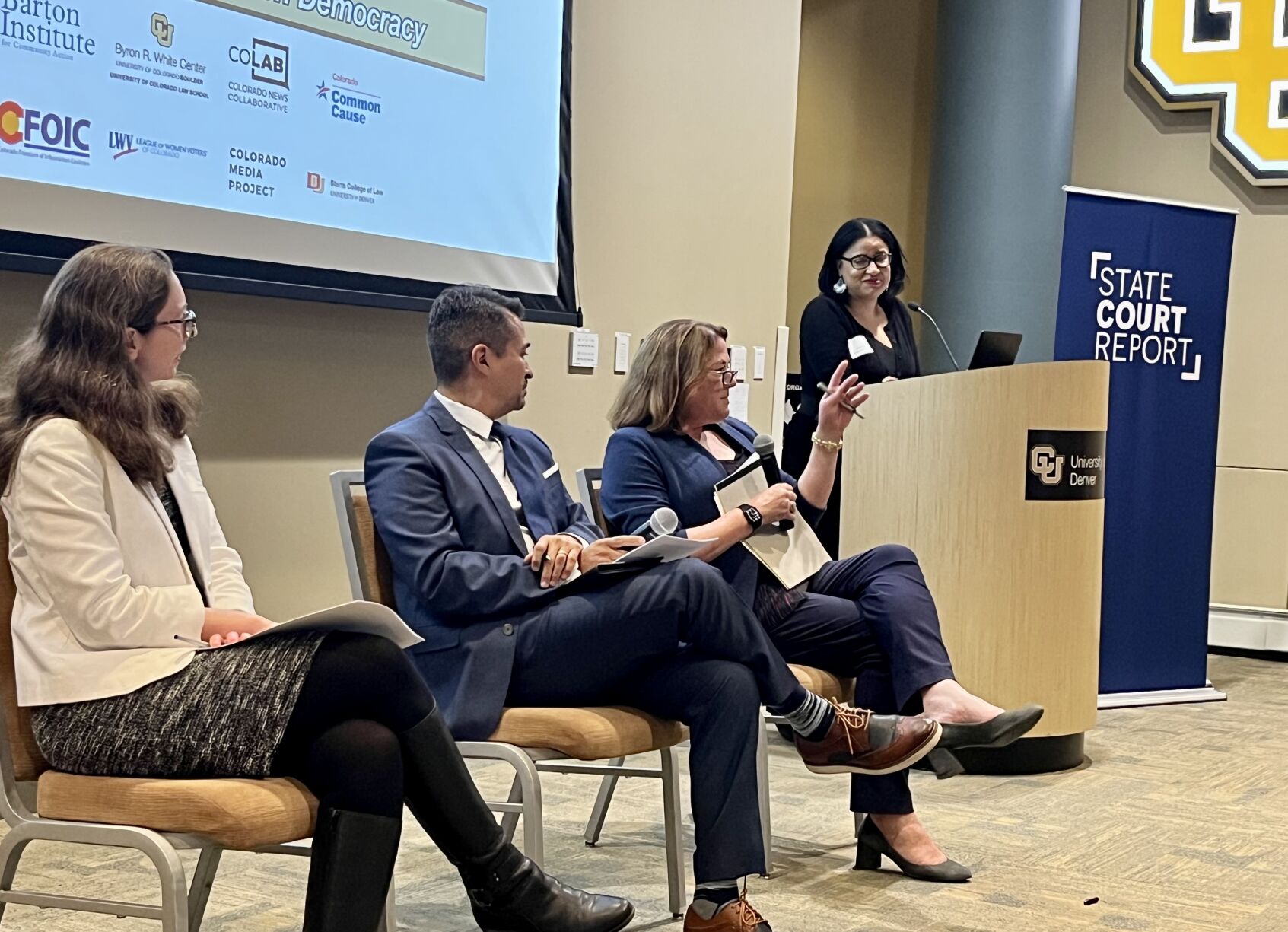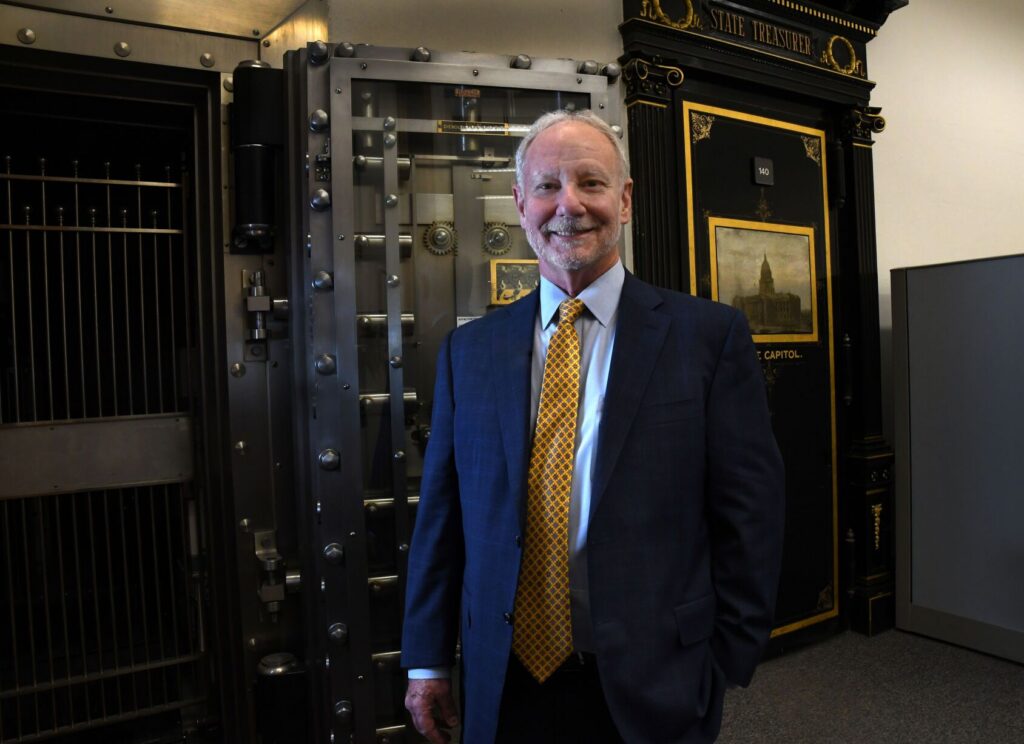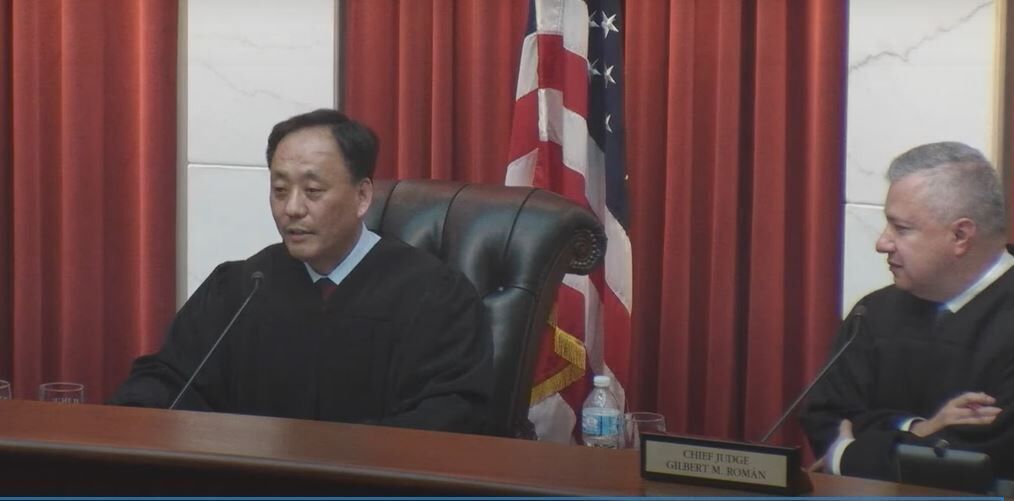Justice Melissa Hart addresses scope of state, federal constitutional protections amid legal battles

During a discussion about the ways in which Colorado’s constitution provides certain protections beyond its federal counterpart, Justice Melissa Hart invited attorneys to consider how to expand the range of issues brought before the state’s highest court.
“We can only do what we get,” she said of the Supreme Court. “But lawyers need to think about how to move cases out of those places where they’re protected from review if there are things that they think would be worth having review and having some kind of standardization on.”
Hart elaborated that some categories of cases, specifically evictions, happen exclusively in county courts. Unlike district courts, which originate the vast majority of cases the Supreme Court hears on appeal, decisions of county court judges rarely reach the justices.
A notable exception came in May, when the court, in an opinion Hart authored, extended federal protections for certain tenants to eviction proceedings in Colorado.
“County courts do make decisions that affect people’s lives very significantly. Many of them escape review,” she added.
Hart spoke on Thursday at the University of Colorado in downtown Denver, as part of the Herrick Roth Lecture Series sponsored by the school of public affairs. The discussion touched on the different rights guaranteed by the state and federal constitutions, and the ways in which advocates are turning to state courts to adjudicate issues from abortion access to voting protections.
“With a new conservative supermajority on the U.S. Supreme Court, the federal courts have limited or eliminated many federal constitutional protections. State courts and state constitutions have taken on new importance filling that void,” said moderator Chandra Thomas Whitfield of Colorado Public Radio.
Hart addressed several areas in which the Colorado Supreme Court has departed from its federal counterpart in interpreting provisions common to both constitutions. For example, the state Supreme Court has held that in the wake of marijuana legalization in Colorado, drug detection dogs can perform an unlawful search if they are trained to sniff cannabis.
Because marijuana possession, in smaller amounts, is permissible, the Colorado Constitution prohibits such searches without probable cause of a crime.
“That’s a way in which we’re protecting more – the defendant’s rights – than the federal constitution does,” Hart said. “I have absolutely no doubt that is not what the (U.S.) Supreme Court would say about the Fourth Amendment if they had this question.”
In another recent case, Rocky Mountain Gun Owners challenged the legality of Colorado’s ban on high-capacity gun magazines. However, the pro-gun group only brought its claim under the Colorado Constitution, which has a different scope than the Second Amendment. The state Supreme Court found the magazine ban legal.
Hart called the case unusual, as it is more common for parties to bring challenges solely under the federal constitution.
“One of the important things about being a judge is you only get to answer the question the parties bring to you,” she said. “Oftentimes, we’ll look at a case and think, ‘Huh, why didn’t they raise the Colorado constitutional question?’ There could have been an interesting opportunity to talk about the difference. But if they don’t raise it, we don’t talk about it.”
Tom I. Romero II, an associate law professor at the University of Denver who also participated in the discussion, said Colorado’s constitution has been amended more than 150 times. Although the ballot initiative process came about in the early 20th century to counteract the influence of corporate interests, Romero said the frequency of amendments increased beginning in the 1980s.
“The ease of amending Colorado’s constitution made it an attractive testing ground for both national movements and many special interests,” he said.
Hart added that her court reviews a narrow slice of the initiative process – whether ballot proposals contain a single subject and a clear title. In recent years, she has seen advocates propose many variations of a single policy proposal before pursuing the version that performs well in voter research.
“The whole process of passing an initiative has become professionalized in this quite remarkable way, which ups the money you need,” Hart said. “I would call that one of the unfortunate pieces about it.”
Alicia Bannon, of the Brennan Center for Justice at New York University School of Law, noted that state constitutions contain a broader range of regulations than the federal constitution – from provisions governing ATMs in Texas to Colorado’s Taxpayer Bill of Rights.
Further, following the U.S. Supreme Court’s reversal of federal protections for abortion, advocates are turning to state constitutional provisions to vindicate reproductive rights, to mixed results.
“What we’re seeing in a whole host of areas is a patchwork developing, where some states are having very robust protections of rights and some are not,” she said. “I do think that’s a concern.”
On the issue of ballot access, Hart said Colorado’s laws contain strong protections for voters. Colorado’s constitution also features an equal rights amendment, which was proposed at the federal level but never successfully incorporated into the Constitution. Although rare, Colorado courts have relied on the state equal rights amendment to rule, for example, that insurers could not discriminate in pregnancy coverage and unmarried fathers have grounds to establish paternity.
The panelists cautioned an increased focus on state courts could lead to heightened polarization around state judiciaries. Bannon cited the example of Wisconsin, where a $51 million campaign earlier this year culminated in the election of a Democratic-backed Supreme Court justice – and Republican threats to impeach her.
Hart pointed out that Colorado’s merit selection system attempts to remove politics from the judicial appointment system as much as possible, and suggested Colorado continue to distance itself from the majority of states that elect their judges.
“I don’t know a single judge in Colorado who would be a judge if we were an elected judge state,” she said. “Not because they couldn’t get elected if they wanted to do that. But because it’s really important to our identity as judicial officers that we stand independently of the political system.”

michael.karlik@coloradopolitics.com













